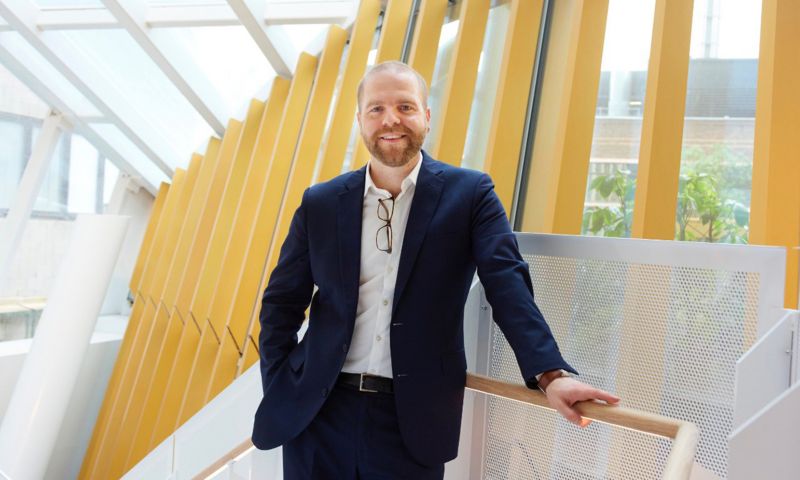When Charlie Robinson finished his Masters of Business Administration, his association with RMIT didn’t end there.

When Charlie joined the Master of Business Administration program it was all part of a plan to leap from a career in publishing to one in business consulting.
“Academically I had a very strong humanities background and was ultimately in a position within an organisation that necessitated knowledge of fundamental business topics,” he said.
“I saw the MBA as a chance to gain a greater understanding of business capabilities, and also to pivot my career to enable new opportunities and drive change as I continued to develop.”
The program’s strong focus on business strategy, economics, accounting and leadership proved to be the perfect combination for Charlie’s future direction.
“The topics that you cover have a very clear relationship with the work that’s conducted in the consulting field,” he said.
“You spend a lot of time working with a cohort of MBA candidates examining the way businesses operate, and inevitably you want to harness those skills and work with organisations from a range of industries to improve their processes and performance.”
The week he finished the MBA, Charlie landed a role in the insights and data advisory branch of global consultancy firm Capgemini. He said this was testament to the “job ready” approach of his lecturers, who had experience in the consulting industry.
But that’s not where Charlie’s affiliation with RMIT ended. In a mutually beneficial relationship, he continues to receive support from his lecturers and now provides mentoring and coaching for MBA students.
During the university’s Enterprise Week, Charlie facilitated the opportunity for students to experiment in Capgemini’s Accelerated Solutions Environment, which businesses use to solve complex business problems. Collaboration is a key to the approach used in the Accelerated Solutions Environment and this is one of the “seven Cs” that companies are looking for in future employees, says David Goodwin, program director of RMIT’s MBA and Executive MBA.
Along with collaboration, Goodwin said students must develop critical thinking, creativity, curiosity, communication skills, confidence and compassion.
“We’re determined that, by the time our graduates complete our programs, they will have refined these traits so they become instinctive,” he said.
“A focus on collaboration equips students to be well prepared for the diversity and complexity of the global world of work. An MBA qualification should signify a commitment to think critically, which drives dissatisfaction with the status quo and a constant striving for improvement.
“Modern-day firms’ relentless emphasis on innovation means they expect creative problem-solving by people at all levels of their organisations. And these characteristics flourish when they are underpinned by an innate curiosity, a quality which a university like ours is uniquely placed to foster.
“To become great communicators, our students need to develop superior listening, speaking and writing skills. It is a given that employers expect MBA graduates to exude confidence, but they now want to see that blended with compassion, a vital ingredient of leadership in a rapidly changing world.”
Story: Kate Jones
You may also be interested in:
Find the right course for you
With over 350 qualifications to choose from, it's never been easier to find the right fit.


